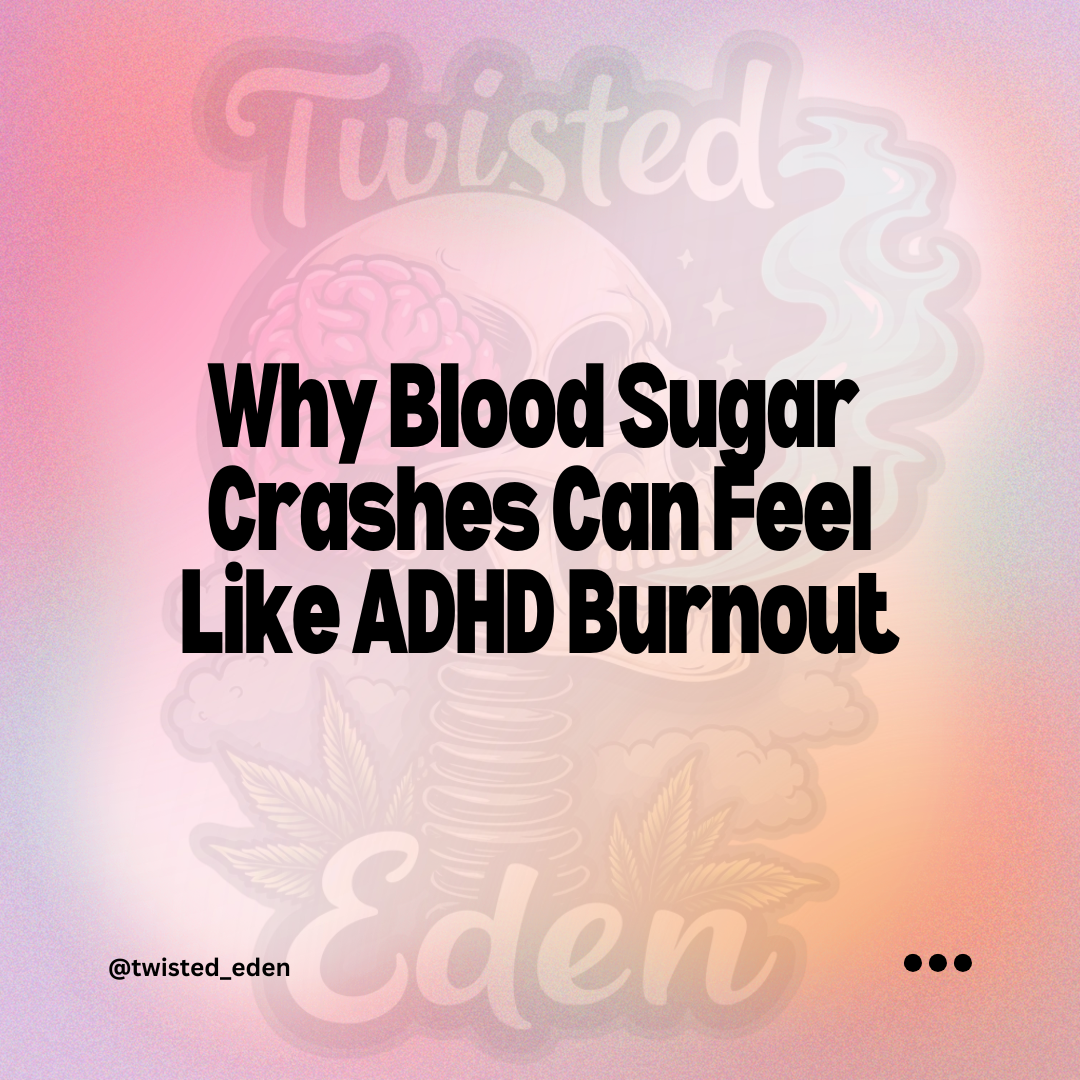
Why Blood Sugar Crashes Can Feel Like ADHD Burnout
Share
 Why Blood Sugar Crashes Can Feel Like ADHD Burnout
Why Blood Sugar Crashes Can Feel Like ADHD Burnout
If you’ve ever hit that mid-afternoon wall — brain fog, irritability, sudden exhaustion — you might’ve blamed your ADHD. But here’s the thing: sometimes, it’s not burnout. It’s blood sugar.
Those 3 p.m. crashes that make you feel unmotivated, snappy, or like your brain has checked out? That’s your body’s way of saying, “Hey, I’m out of fuel.”
The ADHD–Blood Sugar Connection
People with ADHD are more prone to blood sugar swings than most. Why? Because dopamine (our motivation and reward chemical) plays a big role in regulating energy and appetite. When dopamine’s low, it’s easy to skip meals, forget to eat balanced foods, or rely on sugar and caffeine for quick fixes.
But those quick fixes cause a spike — then a crash. And when blood sugar dips too low, your brain literally runs out of fuel. That’s when the ADHD symptoms you were managing just fine suddenly feel 10x worse:
-
Brain fog and forgetfulness
-
Sudden irritability or anxiety
-
Overwhelm and fatigue
-
Intense sugar or carb cravings
Sound familiar? You’re not broken — your brain’s just hungry.
How to Keep Blood Sugar (and Focus) Stable
The goal isn’t perfection — it’s consistency. Think steady fuel, not rollercoaster energy.
1. Eat slow-releasing carbs
Choose complex carbs like oats, quinoa, lentils, or brown rice. These release energy slowly instead of giving you a spike-crash cycle.
2. Pair carbs with protein and fat
A handful of nuts with fruit, or eggs with toast, slows digestion and keeps you fuller longer.
3. Don’t skip meals (especially breakfast)
Starting your day with balanced fuel helps prevent the rollercoaster from even starting.
4. Watch your caffeine
Coffee on an empty stomach = cortisol spike = blood sugar chaos. Try pairing it with food or switching to matcha for gentler energy.
Adaptogens & Nutrients That Help
If you’ve got ADHD, your nervous system is already running on high alert. These herbs and nutrients can help regulate both stress and blood sugar:
-
Ashwagandha – an adaptogen that helps reduce cortisol (the stress hormone that spikes blood sugar).
-
Magnesium – supports insulin sensitivity and helps calm the nervous system.
-
Chromium – improves how your body uses insulin, keeping blood sugar levels more stable throughout the day.
-
Cinnamon extract – can help slow glucose absorption after meals.
These aren’t quick fixes, but when combined with stable eating habits, they can make a huge difference in your daily focus and mood.
The Bottom Line
If you often hit that “ADHD burnout” wall, don’t automatically assume your brain’s failing you. Sometimes, it’s your blood sugar waving a white flag.
Supporting your focus starts with feeding your brain — consistently, gently, and with the right balance of nutrients.
